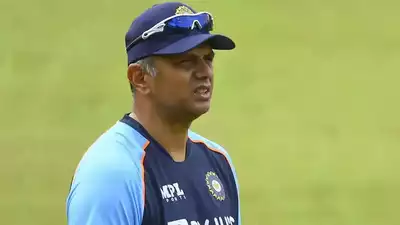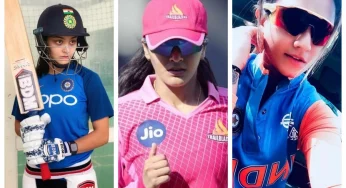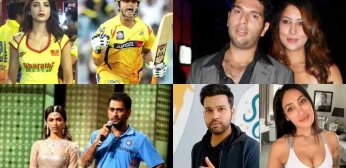India National Cricket Team coaches
Published on: Jul 22, 2023 3:57 pm IST|Updated on: Jul 22, 2023 3:57 pm IST

Rahul Dravid currently holds the 24th position on the list of India’s national cricket team coaches who have managed or coached the side over the past century. The Indian team was granted Test status on June 25, 1932, following established cricket-playing nations such as England, Australia, South Africa, the West Indies, and New Zealand. For a considerable period, the team operated without a dedicated coach, relying on a team manager to oversee affairs behind the scenes.
India National Cricket Team coaches
| Serial No | Team India Head Coach | Duration | Nationality |
|---|---|---|---|
| 1 | Keki Tarapore | 1971 | India |
| 2 | Hemu Adhikari | 1971 – 1974 | India |
| 3 | Gulabrai Ramchand | 1975 | India |
| 4 | Datta Gaekwad | 1978 | India |
| 5 | Salim Durrani | 1980 – 1981 | India |
| 6 | Ashok Mankad | 1982 | India |
| 7 | PR Man Singh | 1983 – 1987 | India |
| 8 | Chandu Borde | 1988 – 1989 & 2007 | India |
| 9 | Bishen Singh Bedi | 1990 – 1991 | India |
| 10 | Abbas Ali Baig | 1991 – 1992 | India |
| 11 | Ajit Wadekar | 1992 – 1996 | India |
| 12 | Sandeep Patil | 1996 | India |
| 13 | Madan Lal | 1996 – 1997 | India |
| 14 | Anshuman Gaekwad | 1997 – 1999 | India |
| 15 | Kapil Dev | 1999 – 2000 | India |
| 16 | John Wright | 2000 – 2005 | New Zealand |
| 17 | Greg Chappell | 2005 – 2007 | Australia |
| 18 | Ravi Shastri | 2007, 2015, 2017 – 2021 | India |
| 19 | Lalchand Rajput | 2007 – 2008 | India |
| 20 | Gary Kirsten | 2008 – 2011 | South Africa |
| 21 | Duncan Fletcher | 2011 – 2015 | Zimbabwe |
| 22 | Sanjay Bangar (Interim) | 2016 | India |
| 23 | Anil Kumble | 2016 – 2017 | India |
| 24 | Rahul Dravid | 2021 – 2023 | India |
In the history of Karnataka cricket, Keki Tarapore was better known as a respected coach than a player. Although he only played one Ranji Trophy match, he gained immense respect among Indian cricketers as a coach. In 1971, he made history by becoming the first team manager of the national cricket team, paving the way for coaching in Indian cricket.
Following Tarapore’s tenure, the approach towards coaching and management evolved. PR Man Singh, the team manager from 1983 to 1987, achieved a significant milestone by leading Team India to their first ICC World Cup title. Subsequently, the Indian cricket team adopted a new policy of offering long-term contracts to India National Cricket Team coaches rather than appointing them for specific tours. This change saw renowned coaches like Ajit Wadekar, Sandeep Patil, and Madan Lal taking charge with more extended tenures.
In 1992, the BCCI appointed Kapil Dev, India’s only World Cup-winning captain, as coach, replacing Anshuman Gaekwad. However, his coaching stint faced challenges, and after controversies surrounding match-fixing and bribery claims, he resigned under pressure.
Gary Kirsten took over as coach in 2008 and had a remarkable tenure. Under his guidance, India became the number one Test team and won their second World Cup in 2011. He was succeeded by Duncan Fletcher, who achieved success primarily in limited-overs formats with MS Dhoni’s captaincy. Following Fletcher’s term, former Indian cricketer Ravi Shastri took the coaching position. Although he didn’t win major titles, Shastri’s leadership made India a cricketing powerhouse.
Shastri’s partnership with captain Virat Kohli proved to be formidable, with Team India holding the number one Test ranking for an impressive 42 months from 2016 to 2020. Under Shastri’s coaching, India’s performance was exceptional across formats, winning a significant percentage of matches and achieving milestones like beating Australia in their own den and reaching the ICC World Test Championship final. His bowling coach, Bharat Arun, played a crucial role in nurturing outstanding pacers like Jasprit Bumrah, Mohammed Shami, and Ishant Sharma, who dominated red-ball cricket.
















